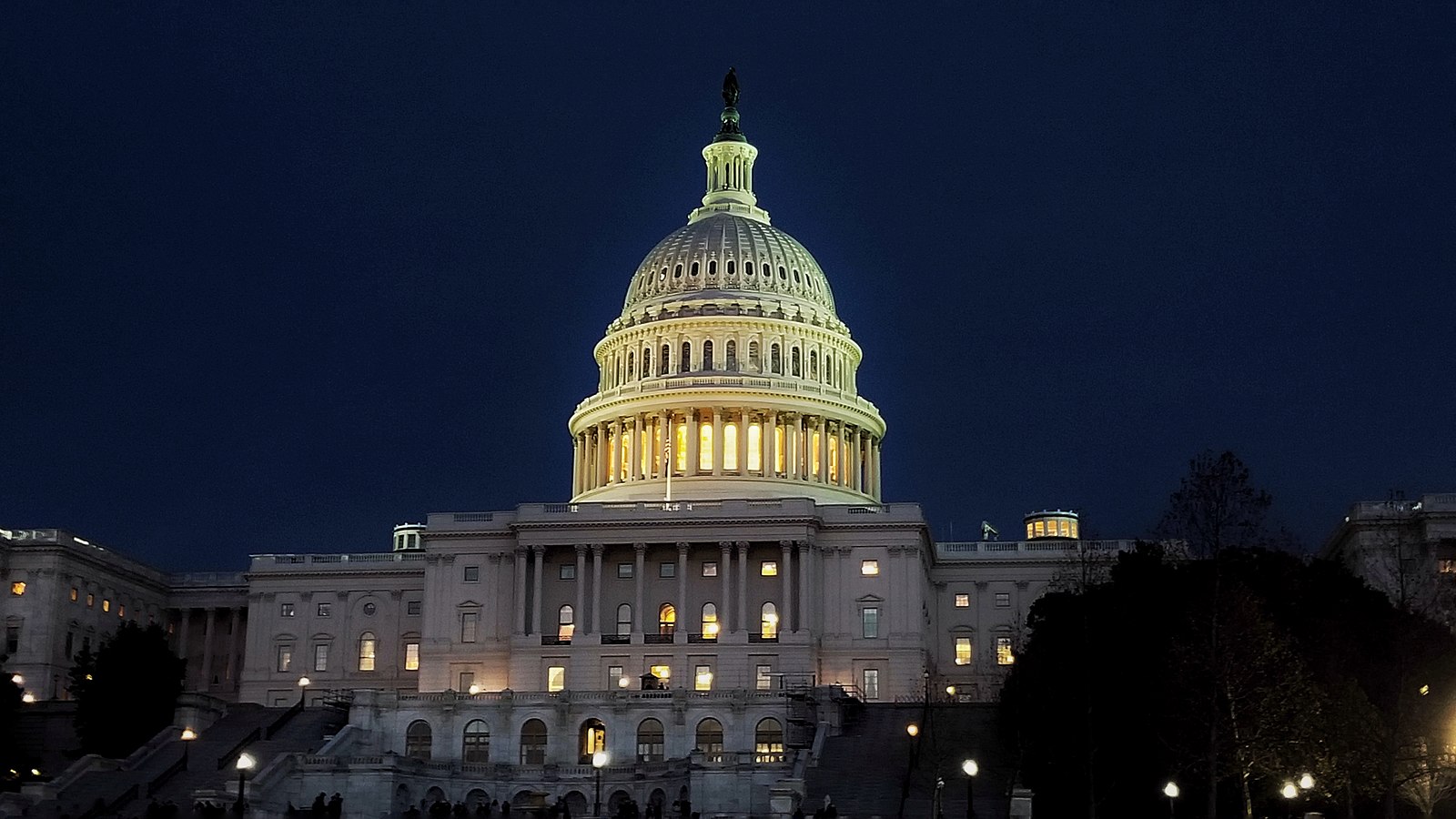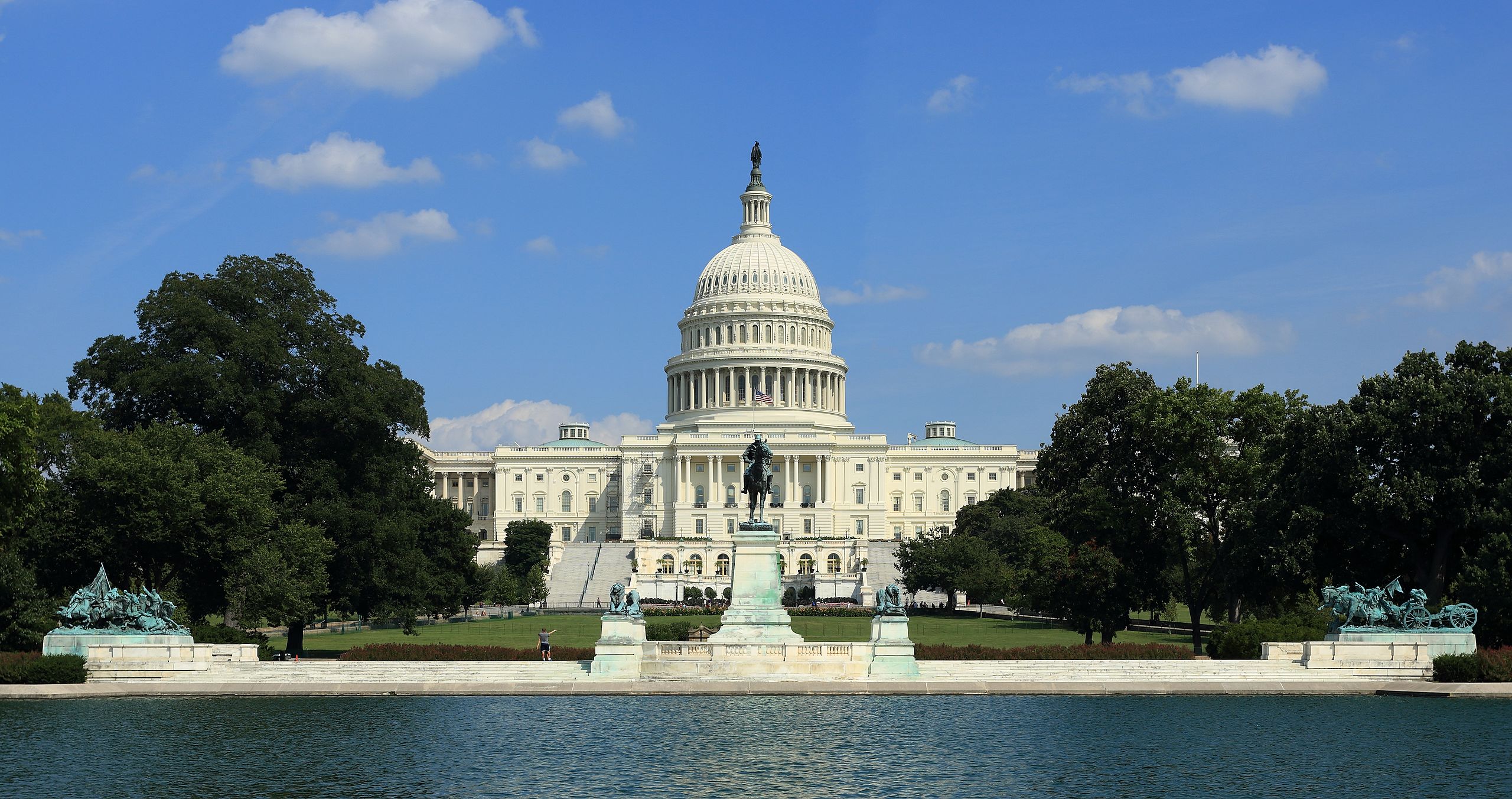Category: Federal
-
Biden raised $37.0 million, Trump $24.9 million in May

Joe Biden outraised Donald Trump by nearly a three-to-two margin last month, while Trump ended the month with a greater than five-to-four advantage in cash on hand, according to campaign finance reports filed with the Federal Election Commission June 20. The Biden campaign raised $37.0 million in May, 39% more than the Trump campaign’s $24.9…
-
U.S. Senate confirms Trump’s 200th judicial nominee with Cory Wilson to 5th Circuit

The U.S. Senate has confirmed 200 of President Trump’s Article III judicial nominees—two Supreme Court justices, 53 appellate court judges, 143 district court judges, and two U.S. Court of International Trade judges—since January 2017. On June 24, the Senate confirmed Cory Wilson to the U.S. Court of Appeals for the 5th Circuit. The 5th Circuit…
-
Candidate filing period for congressional races ends in Rhode Island

On June 24, the statewide filing deadline passed to run for U.S. Congress in Rhode Island. One U.S. Senate seat and both of Rhode Island’s U.S. House seats are up for election in 2020. U.S. Sen. Jack Reed (D) filed for re-election to his Class II Senate seat. He was first elected to the seat…
-
U.S. District Court ruled that Idaho must allow Reclaim Idaho to collect electronic signatures or put the group’s initiative on the ballot directly

On June 23, 2020, United States District Court Judge Lynn Winmill ruled that Idaho officials must do one of two things: (a) allow Reclaim Idaho, sponsors of the Idaho Income Tax Increases for Education Funding Initiative, to gather signatures electronically, or (b) place the ballot initiative on the November ballot themselves. Judge Winmill concluded that…
-
Candidate Madison Cawthorn’s key policy messages from his campaign

Madison Cawthorn, who defeated Lynda Bennett in North Carolina’s 11th Congressional District Republican primary runoff Tuesday, filled out Ballotpedia’s Candidate Connection survey. Ballotpedia asks all federal, state, and local candidates to complete a survey so voters can discover what motivates them on political and personal levels. Select responses from Cawthorn are below, with Ballotpedia’s questions…
-
Alexandria Ocasio-Cortez wins renomination over three challengers

Rep. Alexandria Ocasio-Cortez (D) defeated challengers Michelle Caruso-Cabrera, Badrun Khan, and Sam Sloan in the Democratic primary for New York’s 14th Congressional District. As of 11:15 p.m. Eastern Time on June 23, Ocasio-Cortez had received 73.8% of the vote to Caruso-Cabrera’s 18.6%. This was Ocasio-Cortez’s first primary after she unseated incumbent Joseph Crowley in the…
-
All candidates in New York’s 10th District Democratic primary complete Ballotpedia’s Candidate Connection survey

U.S. Rep. Jerry Nadler (D-N.Y.) recently completed Ballotpedia’s Candidate Connection survey. Nadler, a 28-year incumbent and Chairman of the House Judiciary Committee, is running for re-election in New York’s 10th Congressional District. He joins Lindsey Boylan and Jonathan Herzog, the two other candidates in the race, in completing a Candidate Connection Survey. Ballotpedia asks all…
-
Scott Taylor wins Republican nomination for VA-02, sets up rematch with Elaine Luria
Scott Taylor defeated Ben Loyola and Jarome Bell to win the Republican nomination for U.S. House in Virginia’s 2nd Congressional District. Taylor had received 48.2% of the vote to 28.3% for Loyola and 23.4% for Bell as of 8:00 PM Eastern with 74% precincts reporting. Taylor served a single term in the U.S. House before…
-
Cawthorn defeats Bennett in NC-11 Republican primary runoff

Madison Cawthorn defeated Lynda Bennett in North Carolina’s 11th Congressional District Republican primary runoff Tuesday. With 60% of precincts reporting, Cawthorn had received 66% of the vote to Bennett’s 34%. Former incumbent Mark Meadows (R) did not seek re-election and left office early to serve as White House chief of staff. Meadows, along with President…
-
Massie defeats challenger McMurtry in KY-04

Incumbent Thomas Massie defeated challenger Todd McMurtry in the Republican primary for Kentucky’s 4th Congressional District. As of 9:30 p.m. Eastern Time, Massie had received 88.2% of the vote to McMurtry’s 11.8%. McMurtry was Massie’s first primary challenger since he was elected in 2012. Election forecasters project Massie is a solid favorite to defeat the…

